IBM brings the power of Watson to cyber security
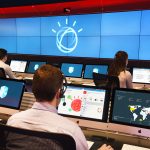
The technology industry is having to contend with ever more sophisticated cyber security threats. With a growing shortage of security analysts and masses of data to process this throws more emphasis on the use of AI techniques.
This week at RSA Conference, IBM Security will be demonstrating what the "cognitive security operations center" of the future will look like, including new Watson-powered tools for investigating security events, new services for building these SOCs and breakthrough research that allows customers and analysts to interact with Watson through voice and chat.
How criminals use Artificial Intelligence and Machine Learning

It has become common practice for attackers to use Artificial Intelligence (AI) and Machine Learning (ML) to link tools together so that they can be run in parallel when conducting an attack.
Attackers use AI and ML to take the results from one tool and then allow the other tools to "learn" about the finding and use it against other systems. As an example, if a one tool finds a password, that tool can feed the information to another tool or bot that may conduct the exploitation of one or many systems using the discovered password.
Artificial intelligence in retail: It's the right move

Technology has long since advanced to the point where it can make decisions better than people can, and yet grocery managers are still happy to use their own experience to drive decision-making, sacrificing speed, efficiency and savings.
By optimizing key strategic areas of pricing and replenishment, and automating decisions using machine learning, retailers can combine the speed of their decisions with their KPIs (margins, volumes, mark downs). Yet still retailers are not currently marrying the two in a responsive and effective way.
Why you should embrace AI
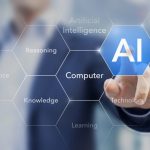
Artificial intelligence (AI) will destroy jobs, robots will replace humans… We are no stranger to these talks about the evolution of AI and the rise of robots. Some go as far as predicting that one in three jobs will be replaced by robots in the next 20 years (including clerical jobs), while others preach that sophisticated software in tiny gadgets that will end up affecting our self-worthy and identity.
In the meantime, studies show otherwise, and all this automation anxiety is simply overblown. The only thing professionals should be afraid of is becoming obsolete by missing the chance of turning this technology to their advantage.
Almost half of UK CEOs not assessing AI's impact
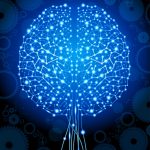
UK CEOs aren’t giving artificial intelligence (AI) and automation the right attention, and that’s putting the entire country’s economy at risk.
This is according to a new report by PwC, which was published at the World Economic Forum in Davos. It says that almost half (47 percent) of UK’s CEOs are not addressing the impact AI and automation can have on their organisation.
What does 2017 have in store for the bot?
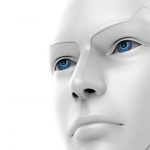
A lot can happen in 12 months. Last year, bots exploded into the mainstream, and adoption was rapid. For example, over $1.5 billion was invested in AI startups; Microsoft has over 35,000 bot developers on its platform; The Economist even asked if bots are the new apps.
As with any technology that grows so quickly in such a short amount of time, sometimes we need to take a step back. Last year, we saw bots enter the home through the likes of Amazon Echo’s Alexa and Google Assistant, and this paved the way for more bots to be introduced to our everyday lives. So what happens next?
Artificial intelligence grabs headlines, but the true impact of robotics is in the back office

The hype over machine learning masks the real changes happening in the workplace.
Looking back on 2016, it would be easy to think that this was the year that artificial intelligence arrived, borne in by an army of automated workers. Media outlets bombarded us with news on the future of AI and automation. The vision of a dystopian future where robots do all the work and humans are trapped in a jobless, meaningless existence drove headlines of all kind. In politics, this ranged from speculation around a universal basic income, to debates over whether Donald Trump can reverse decades of technological progress in US manufacturing. In AI, the latest tangential development from any tech giant was duly reported as headline news.
The problem with iPhone

Today we arrive at the first of two 10-year anniversaries regarding iPhone: Steve Jobs unveiling the handset six months before its release -- unusual for Apple's then-CEO to pre-announce something, but necessary, with the federal regulatory rigmarole that cellular devices go through. Jobs and his management team brought the smartphone to market at great risk: Established and entrenched manufacturers, mainly Nokia, had huge distribution channels and massive amounts of research and development invested in their cellulars. iPhone debuted in one market (United States) and on a single carrier (AT&T, which concurrently rebranded). By most measures of business strategies: Insanity. But risk was a defining characteristic of Jobs' leadership style running the company.
You will read many "state of iPhone" analyses and commentaries this week spotlighting slowing sales, as buying growth plateaus in major markets (China, Europe, and the United States) and observing that Android continues to gobble global market share. The problem with iPhone is something else, and it's a metaphor for what's desperately wrong at Apple as 2017 starts: Loss of innovative mindshare; obsession with an outdated design motif; unwillingness to take meaningful risks. The company's fortunes rose with iPhone, and they will fall with it.
Insurance company replaces claim workers with AI

We keep hearing how artificial intelligence won't leave people jobless, but instead will leave them with more time to tackle more demanding issues. However, if a Japanese insurance company is any indicator, that story doesn't hold water.
Fukoku Mutual Life Insurance Company just announced that it will "replace 34 claim workers with IBM's Watson Explorer". So yeah, 34 white-collar employees got replaced by an AI.
What's next for AI in 2017?
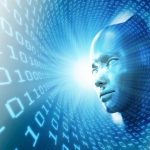
In the sci-fi film Ex Machina, reclusive inventor Nathan Bateman foresees a bleak future, telling the movie's protagonist, Caleb, that "One day the AIs are going to look back on us the same way we look at fossil skeletons on the plains of Africa".
When we don’t understand something, we tend to fear it; which is one reason popular movies like Ex Machina and HBO’s nail-biting new series Westworld like to imagine futures in which artificial intelligence plots to destroy humanity.
Three security trends that will take off in 2017

Cybersecurity, the Internet of things, driverless cars, artificial intelligence. These topics were hot in 2016, and interest in them should continue strong in 2017. However, the discussions will take new turns. Where will they go?
I predict that three particular trends will gain real momentum and re-shape the cyber landscape in 2017.
What's the difference between deep learning and machine learning?

2016 has been the year of Artificial Intelligence (AI), and more specifically, the breakout of machine learning and deep learning becoming the big buzz words in technology. While both have gained a lot of attention this year, these techniques have been around for quite some time, but no more so than now, has it felt so promising.
Over the past few years, there has been a monumental shift in technology and how it’s being applied to everyday life. From robots to search engines, deep learning and machine learning are being raved about as the tech fueling our new innovations, but many are left wondering what truly differentiates these two models.
Artificial intelligence can improve productivity

There is a challenge, both within and out of the workplace, which we have all faced at some point when tackling a task. We have the skills. We have the ability. We know what we need to do, and yet an activity becomes a chore, and a time-consuming burden.
The productivity puzzle is a broad, complex one, but this is undoubtedly one facet of it. Mundane activities without question are often crucial to our day to day, and need to be done. But as humans we need mental stimulation, and the creative applications of our skills to keep us engaged. When these creative opportunities are limited, when occupations risk becoming a cycle of repetitive or dull activity and productivity suffers.
Many CEOs believe technology will make people 'largely irrelevant'

Although artificial intelligence (AI), robotics and other emerging technologies may reshape the world as we know it, a new global study has revealed that the majority of CEOs now value technology over people when it comes to the future of their businesses.
The study was conducted by the Los Angeles-based management consultant firm Korn Ferry that interviewed 800 business leaders across a variety of multi-million and multi-billion dollar global organizations. The firm says that 44 percent of the CEOs surveyed agreed that robotics, automation and AI would reshape the future of many work places by making people "largely irrelevant".
Amazon unveils artificial intelligence platform

During its re:Invent developer event in Las Vegas, Amazon announced its new Amazon AI platform which will make many the company's machine learning tools available to developers to use in their apps and websites.
Andy Jassy, the CEO of Amazon Web Services, explains that the company has a great deal of background in machine learning, saying: "We do a lot of AI in our company. We have thousands of people dedicated to AI in our business". Amazon has decided to release three tools that take advantage of its AI to developers with the launch of its new platform.
Recent Headlines
BetaNews, your source for breaking tech news, reviews, and in-depth reporting since 1998.
© 1998-2025 BetaNews, Inc. All Rights Reserved. About Us - Privacy Policy - Cookie Policy - Sitemap.